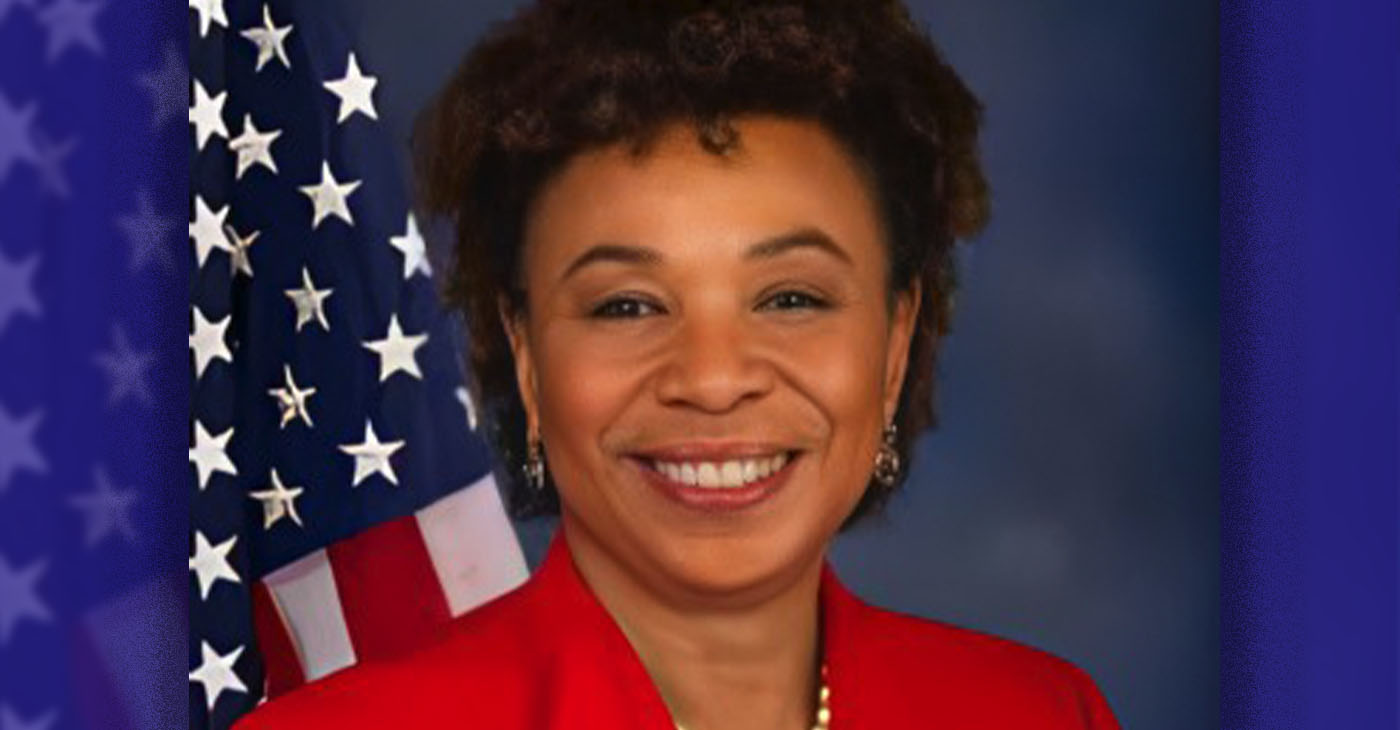Barbara Lee
Supreme Court Denies Affirmative Action for Everyone but the Wealthy and White
For generations, affirmative action has been a powerful means of lowering barriers to education for historically marginalized and underrepresented students of color. At its core, it simply aims to remedy the government-sanctioned, decades-long inequality by making race one factor in the college admissions process.

By Hon. Barbara Lee
By ruling that race and ethnicity cannot be considered in college admissions, the U.S. Supreme Court sets us back more than four decades.
For generations, affirmative action has been a powerful means of lowering barriers to education for historically marginalized and underrepresented students of color. At its core, it simply aims to remedy the government-sanctioned, decades-long inequality by making race one factor in the college admissions process.
Dismantling these policies will not only have devastating implications for students of color, but for the classrooms at these institutions, which will become devoid of diversity in the lived experience and perspective needed to solve America’s toughest challenges. Higher education serves as an incubator for the brilliant ideas of tomorrow. Those ideas will now become less diverse.
I’m a graduate of Mills College, a women’s college in Oakland. There was a time when, as a Black woman, my options for higher education were limited. But because affirmative action successfully addressed the centuries-long discrimination in higher education, I was able to earn my degree while caring for my two children as a single mother on public assistance.
I met my mentor, Congresswoman Shirley Chisholm; received my master’s degree in social work; became a successful small business owner; serve in Congress; and ran to be only the third Black woman in our nation’s history to serve in the U.S. Senate.
The list of barriers to higher education is already long, and I fear that with this ruling we are turning back the clock, and a generation of talented young people of color may not be given the same opportunities that I had.
For those reasons and more, I’ve fought hard to uphold affirmative action. California’s Proposition 209, which effectively banned affirmative action across our state’s public education systems, was a harmful policy that deprived countless students of color the opportunity to study at some of the greatest academic institutions in the world.
In 2020, I fought for the reversal of Prop 209, but it sadly failed. I argued against the banning of affirmative action before the UC Board of Regents years ago, and since that policy went into effect, the share of Black, Latino and Native American students has fallen significantly.
California has a difficult relationship with race. Despite being one of the most progressive states in the country, we struggle with racial inequality of epic proportions.
Ironically, [June 29] the California Reparations Task Force completed the report they were commissioned to produce. I was the only member of Congress to testify in front of the task force, and yesterday’s ruling affirms the need for their work toward an effort to repair the legacy of slavery, Jim Crow and systemic racism, and for my continued effort at the federal level to establish a Commission on Truth, Racial Healing and Transformation.
While the country mourns the end of affirmative action in higher education, let’s be clear: The Supreme Court did not strike down affirmative action for everyone. It was just taken away for everyone that’s not wealthy and white.
For many wealthy white students, it still exists in the form of legacy admissions. Justice Brett Kavanaugh knows this intimately, as a legacy admission to Yale. Judge Clarence Thomas was an affirmative action admission as well. Yet, they are denying future generations their same opportunities, and making the application of a first-generation college student from an immigrant family less notable than the child of a fifth-generation Yale graduate from a wealthy family.
In the spirit of Judge Ketanji Brown Jackson’s dissent on the ruling, preventing the consideration of race does not end racism, and deeming race irrelevant in law does not make it so in life. We do not live in a colorblind society.
Systemic racism is not an abstract idea. For the far right, it is intentional, deliberate and strategic. Their efforts to ban books, erase history and simply deny students of color entry into the building is a coordinated effort to uphold white supremacy.
Education has always been the great equalizer, which is why, for centuries, people of color were systematically shut out of educational opportunities. [Last] Thursday’s decision is simply one more part of this effort and, ultimately, lays the groundwork to undermine Brown v. Board of Education, which began the dismantling of Jim Crow.
The remnants of Jim Crow laws and the chains of slavery were meant to be broken, not meant to take new forms. Affirmative action is a crucial tool to not only incentivize racial diversity on our college campuses, but level the playing field for all those in pursuit of the American dream.
This opinion was originally published in the Sacramento Bee on July 1.
Barbara Lee
Congresswoman Barbara Lee Issues Statement on Deaths of Humanitarian Aid Volunteers in Gaza
On April 2, a day after an Israeli airstrike erroneously killed seven employees of World Central Kitchen (WCK), a humanitarian organization delivering aid in the Gaza Strip, a statement was release by Rep. Barbara Lee (D-CA-12). “This is a devastating and avoidable tragedy. My prayers go to the families and loved ones of the selfless members of the World Central Kitchen team whose lives were lost,” said Lee.

By California Black Media
On April 2, a day after an Israeli airstrike erroneously killed seven employees of World Central Kitchen (WCK), a humanitarian organization delivering aid in the Gaza Strip, a statement was release by Rep. Barbara Lee (D-CA-12).
“This is a devastating and avoidable tragedy. My prayers go to the families and loved ones of the selfless members of the World Central Kitchen team whose lives were lost,” said Lee.
The same day, it was confirmed by the organization that the humanitarian aid volunteers were killed in a strike carried out by Israel Defense Forces (IDF). Prior to the incident, members of the team had been travelling in two armored vehicles marked with the WCF logo and they had been coordinating their movements with the IDF. The group had successfully delivered 10 tons of humanitarian food in a deconflicted zone when its convoy was struck.
“This is not only an attack against WCK. This is an attack on humanitarian organizations showing up in the direst situations where food is being used as a weapon of war. This is unforgivable,” said Erin Gore, chief executive officer of World Central Kitchen.
The seven victims included a U.S. citizen as well as others from Australia, Poland, the United Kingdom, Canada, and Palestine.
Lee has been a vocal advocate for a ceasefire in Gaza and has supported actions by President Joe Biden to airdrop humanitarian aid in the area.
“Far too many civilians have lost their lives as a result of Benjamin Netanyahu’s reprehensible military offensive. The U.S. must join with our allies and demand an immediate, permanent ceasefire – it’s long overdue,” Lee said.
Activism
Rep. Barbara Lee, CBC Members, Raise Concerns Over Layoffs of Black Tech Workersi2s
In 2015, the CBC launched Tech 2020 to ensure that Black Americans would be better represented in the industry by 2020. However, Lee says those tech companies that pledged to be more inclusive are falling short of their promise.

By Post Staff
Democratic Congresswoman Barbara Lee and several other Congressional Black Caucus members have written a letter to Julie Su, the acting secretary of the U.S. Department of Labor, addressing the disproportionate layoffs of Black tech employees.
“We write to express our concerns with recent reports highlighting the impacts of widespread layoffs within the tech industry and its disproportionate impacts on the African American community and women,” the letter stated.
“Tech companies who previously agreed to address bias and discrimination and create greater opportunities in the workforce are now quietly defunding diversity pledges,” the letter continued.
In 2015, the CBC launched Tech 2020 to ensure that Black Americans would be better represented in the industry by 2020. However, Lee says those tech companies that pledged to be more inclusive are falling short of their promise.
Lee told the Grio, “We’ve been fighting for justice and for economic parity and security as part of the mission of the CBC,” she said, “and so when we established Tech 2020, it was about equity and inclusion.”
“Now with all the Supreme Court decisions and with all of the backsliding, especially by Republicans, it’s very important that we be very assertive in our fight for equity and justice within the private sector and public sector,” she said.
According to the letter, since the beginning of 2023, more than 240,000 tech workers have been laid off, more than 50% increase from 2022.
Lee found that minorities and women make up most of the tech layoffs that have occurred this year.
“If you don’t have African Americans developing content,” Lee said, “then we’re going to have Black people, Brown people [and] women disproportionately impacted.”
“This country is supposed to be a representative democracy where you include people, and you don’t discriminate against them,” she added. “When you see the disproportionate numbers of people being laid off, then that is a red flag that it could be discrimination occurring against these workers and employees.”
Activism
Congresswoman Lee Releases Statement on Vandalism of Lake Merritt Menorah

Congresswoman Barbara Lee (CA-12) released the following statement on the destruction of the large Menorah on display at Lake Merritt in Oakland:
“I’m deeply saddened and disheartened that the Lake Merritt Menorah was destroyed earlier this week. My heart and prayers go out to the Jewish community in Oakland, and I strongly condemn this vile act of antisemitism.”
“Oaklanders salvaged the menorah and gathered together (Wednesday evening) to celebrate its re-lighting, spreading love and support in the way only Oakland does. I’m proud of my constituents. We will not let hate win.”
-

 Activism4 weeks ago
Activism4 weeks agoOakland Post: Week of March 27 – April 2, 2024
-

 #NNPA BlackPress4 weeks ago
#NNPA BlackPress4 weeks agoBeloved Actor and Activist Louis Cameron Gossett Jr. Dies at 87
-

 Community1 week ago
Community1 week agoFinancial Assistance Bill for Descendants of Enslaved Persons to Help Them Purchase, Own, or Maintain a Home
-

 Activism3 weeks ago
Activism3 weeks agoOakland Post: Week of April 3 – 6, 2024
-

 Business2 weeks ago
Business2 weeks agoV.P. Kamala Harris: Americans With Criminal Records Will Soon Be Eligible for SBA Loans
-

 Activism2 weeks ago
Activism2 weeks agoOakland Post: Week of April 10 – 16, 2024
-

 Community2 weeks ago
Community2 weeks agoAG Bonta Says Oakland School Leaders Should Comply with State Laws to Avoid ‘Disparate Harm’ When Closing or Merging Schools
-

 Community7 days ago
Community7 days agoOakland WNBA Player to be Inducted Into Hall of Fame




















































